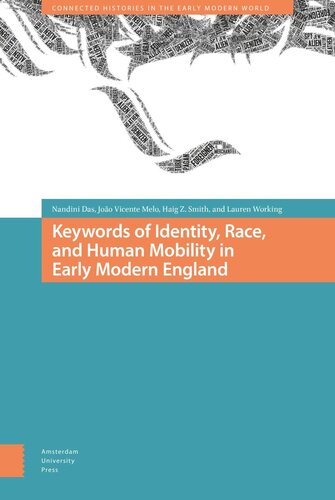

Most ebook files are in PDF format, so you can easily read them using various software such as Foxit Reader or directly on the Google Chrome browser.
Some ebook files are released by publishers in other formats such as .awz, .mobi, .epub, .fb2, etc. You may need to install specific software to read these formats on mobile/PC, such as Calibre.
Please read the tutorial at this link: https://ebookbell.com/faq
We offer FREE conversion to the popular formats you request; however, this may take some time. Therefore, right after payment, please email us, and we will try to provide the service as quickly as possible.
For some exceptional file formats or broken links (if any), please refrain from opening any disputes. Instead, email us first, and we will try to assist within a maximum of 6 hours.
EbookBell Team

0.0
0 reviewsWhat did it mean to be a stranger in sixteenth and seventeenth-century England? How were other nations, cultures, and religions perceived? What happened when individuals moved between languages, countries, religions, and spaces? Following the model of Raymond Williams’s classic Keywords: A Vocabulary of Culture and Society (1976), Keywords of Identity, Race, and Human Mobility analyses a selection of terms that were central to the conceptualisation of identity, race, migration, and transculturality in the early modern period. In many cases, the concepts, preconceptions, and debates that they embody – or sometimes subsume – came to play formative roles in the articulation of identity, rights, and power in subsequent periods. Together, the essays in this volume provide an invaluable resource for anyone interested in the development of issues of identity, belonging, and human mobility.